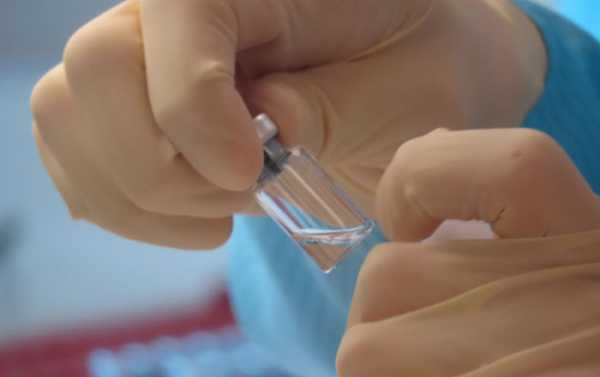
MOSCOW (Sputnik) – Numerous biotech and pharmaceutical companies are working around the clock, conducting preclinical and clinical trials to find the ultimate weapon against the coronavirus — a vaccine — that will be able to end the current pandemic.
In late April, the World Health Organisation said it had received more than 100 COVID-19 candidate vaccines, with seven in human testing already. Now the race is not only against the virus itself, but against time, as COVID-19 is spreading across the globe with great speed and ferocity. As of Saturday, COVID-19 has infected over 3.3 million people worldwide and claimed more than 238,000 lives, according to Johns Hopkins University.
While many scientists say that it may take up to 18 months for a vaccine to be developed, approved, and become ready, many pharmaceutical companies are preparing to fast-track the process. Sputnik managed to reach some of the producers to talk about the progress they have made.
US Arcturus Therapeutics: Extraordinarily Low Dose Vaccine
San Diego-based Arcturus Therapeutics, a leading messenger RNA medicine company, has recently joined forces with the Duke-NUS Medical School in Singapore to work on a vaccine which uses self-transcribing and replicating (STARR™) mRNA technology.
This week, Arcturus announced positive preclinical data for the vaccine candidate. Plus, the company says that it has become the first US company to report data on seroconversion, a specific period during which a certain antibody develops and becomes detectable in the blood. The next phase – human trials – is about to start in Singapore this summer. At least 76 volunteers, including the elderly, are to take part.

A man wears a face mask as he checks his phone in Times Square on March 22, 2020 in New York City. – Coronavirus deaths soared across the United States and Europe on despite heightened restrictions as hospitals scrambled to find ventilators
One of the main features of the vaccine from Arcturus is its “extraordinarily” low dose – only two micrograms. To compare, a DNA vaccine weights thousands of micrograms, while an RNA vaccine is hundreds of micrograms.
To understand the amount of dose for the vaccine, one can take a one-litre milk bottle. All the vaccines for the population of the United States — 500 million doses — can be put in this bottle, Payne says.
Another specific feature of the vaccine is that it is devoid of any viral elements, including viruses, viral vectors, adjuvants, or coadjuvants.
India’s Bharat Biotech: Vaccine Built on Flu Vaccine “Backbone”
India, which is among the world’s largest vaccine producers from the Southeast Asia region and home to half a dozen major vaccine makers, is also gearing up for the much-needed COVID-19 vaccine. Among the country’s companies to announce a bid is Bharat Biotech, a leading vaccine and bio-therapeutics manufacturer, which has already commercialised 16 vaccines, including one against the H1N1 flu that caused the 2009 pandemic.
Together with virologists at the University of Wisconsin–Madison, and the FluGen vaccine company, Bharat Biotech started tests and developments of the vaccine, called CoroFlu®. The developers explain that it “will build on the backbone” of FluGen’s flu vaccine candidate.
Apart from many vaccines developed against COVID, CoroFlu® will be delivered intranasally since this route mimics the natural one of infection by the coronavirus, the developers say, adding that such a way is more effective and induces more immune responses than intramuscular shots.

The spread of the coronavirus disease (COVID-19) in Kolkata Municipal workers wearing protective gear spray disinfectant in a residential area during a nationwide lockdown to slow the spreading of the coronavirus disease (COVID-19), in Kolkata, India, April 29, 2020.
The vaccine is currently undergoing animal trials in the United States. Human clinical trials in India are due to start in the next four to six months.
Canada’s Medicago: Virus-Like Particle That Will Not Make Anyone Sick
Medicago, a biopharmaceutical company headquartered in Quebec City, Canada, is currently developing a vaccine based on the so-called Spike (S) protein. This protein is found at the surface of the coronavirus and seems to be the best target for the immune system to develop a protective response, according to the company,
She explained that this particle would not make someone sick because it “lacks core genetic material”.
Asked about possible problems on the way to developing the vaccine, Charland admitted that hurdles were likely to arise, but that it is a part of standard product discovery and development.
Charland agrees that it is not possible to predict the outcome of their research until human trials start. The company is now conducting preclinical testing of the vaccine in animals. Once it is over, the company plans to discuss human trials which it expects to complete by the end of the year.
China’s Sinovac Biotech: No Active Ingredient
As of now, China has more leading COVID-19 vaccine candidates than any other country. One of the companies that announced the start of human trials in April is Beijing-based Sinovac Biotech, a leading provider of biopharmaceutical products in the country.
The vaccine developed by the company does not have “the active ingredient”, according to a statement provided by the company’s media relations department to Sputnik. It is made by “chemical treatment”, which causes COVID-19 “to lose the infectivity and replication power”.

A woman wearing face mask and traditional Chinese clothing visits Gubei Water Town on the first day of the five-day Labour Day holiday, following the coronavirus disease (COVID-19) outbreak, on the outskirts of Beijing, China, May 1, 202
Meanwhile, the company admits that on the way to success it may face multiple obstacles.
The company refused to draw a parallel between the potential COVID-19 and current anti-flu vaccines.
Italy, Germany, and Belgium: Adenoviral Vector-Based Vaccine
Europe is also joining forces to stand against the deadly coronavirus. Italy’s ReiThera, Germany’s Leukocare, and Belgium’s Univercells have recently tied up to accelerate the development and mass production of the adenoviral vector-based vaccine.
The consortium is preparing for a COVID-19 first-in-human trial which is due to begin in summer this year. If successful, the companies plan to start large-scale vaccine production this year and to manufacture some six million doses of the vaccine early in 2021.
According to Bauer, vaccines based on adenoviral vectors were extensively evaluated during the clinical trials. The evidence indicates that these vectors are safe, well-tolerated, and “induce robust immune responses from a single dose”, she added.

Spanish ambulance (File)
Europe has been the active centre of the COVID-19 pandemic since mid-March. According to the European Centre for Disease Prevention and Control, Europe has over 1.3 million cases, with the majority of them being recorded in Spain, Italy, the United Kingdom, Germany, and France. Europe also has also reported the majority of COVID-19 deaths — nearly 135,000. However, the number of active cases in European nations is beginning to fall, and some countries are looking at easing lockdown measures over the coming weeks.
Sourse: sputniknews.com






